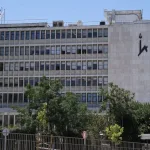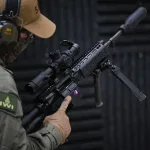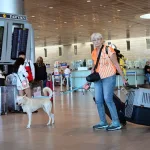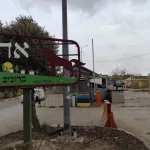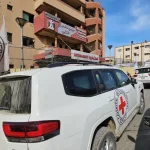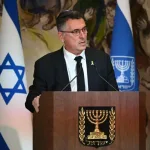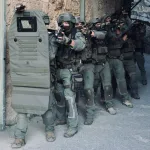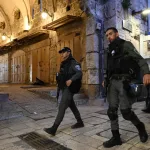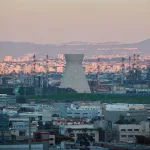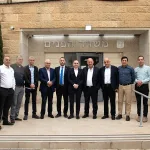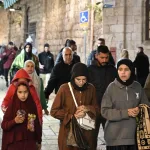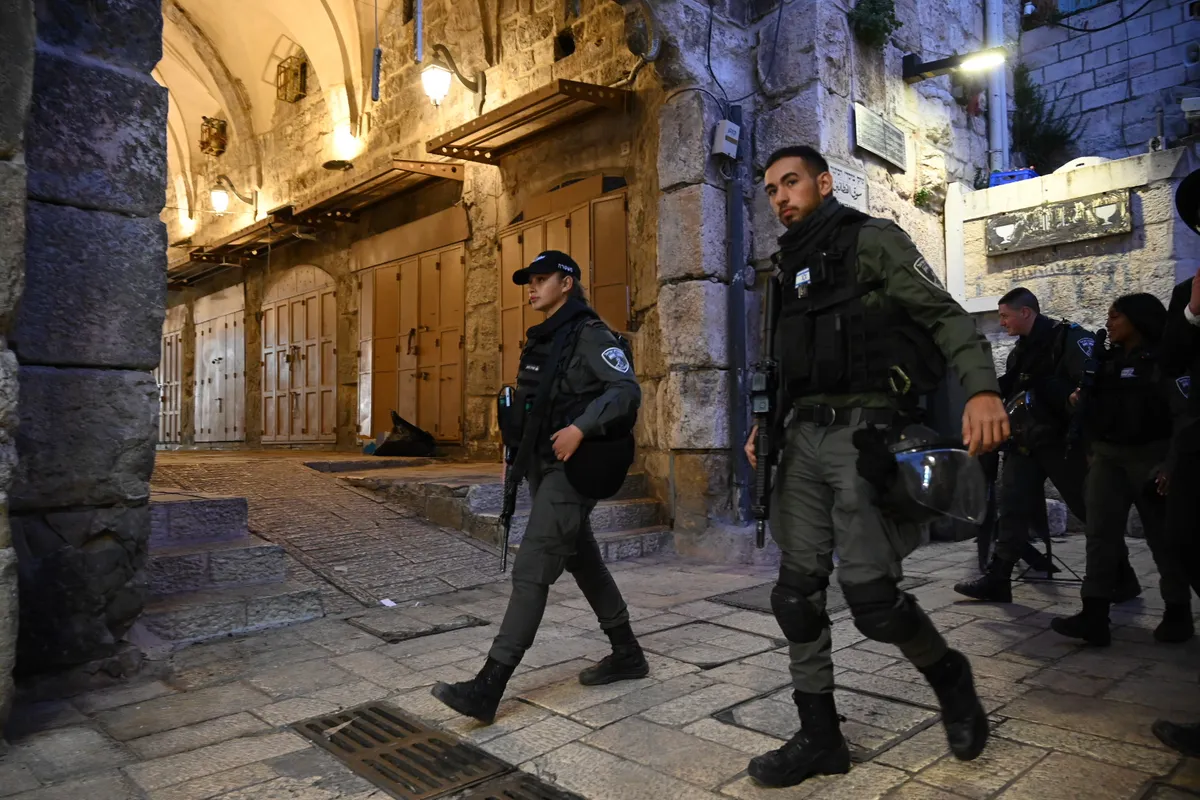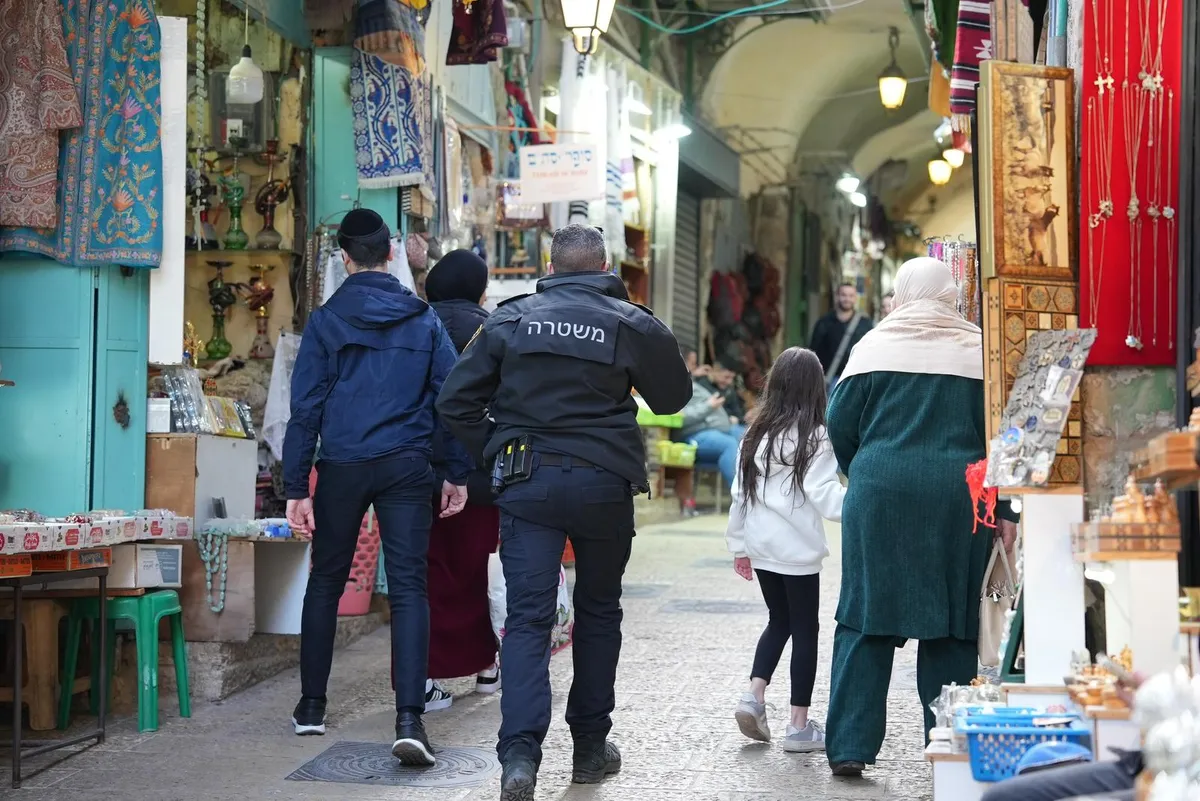Jerusalem, 30 April, 2025 (TPS-IL) — Amid deadly Sunni-Druze clashes near Damascus, the Israeli Defense Forces struck Syria in a warning to the extremist Islamic groups there, Prime Minister Benjamin Netanyahu’s office said on Wednesday. But one Israeli Druze official told The Press Service of Israel that airstrikes would not be enough.
“The IDF carried out a warning operation and attacked an extremist group that was organizing to continue attacking the Druze population in the town of Iskhaniya, in the Damascus province of Syria,” Netanyahu’s office said.
“At the same time, a serious message was also conveyed to the Syrian regime – Israel expects it to act to prevent harm to the Druze.”
Wael Mugrabi, head of the Ein Qiniyye Local Council in the Golan Heights, told TPS-IL that only the intervention of Israeli ground forces will provide security for the Syrian Druze. Mugrabi has been lobbying Israeli officials to directly intervene in southern Syria.
“I call on the Prime Minister and demand immediate intervention to save the Druze in Syria — and for the IDF to get involved as soon as possible. I want to see the Armored Corps on the ground before this reaches us,” Mugrabi said.
“I remind you of what Julani said: ‘Our eyes are set on Jerusalem,’” Mugrabi added, referring to Syria’s Turkish-backed President Ahmed al-Sharaa. “If there is no immediate intervention — we are next.”
As Israel marked Memorial Day, Druze demonstrators in northern Israel blocked a road and burnt tires demanding government action to protect their Syrian co-religionists.
At least 12 Syrian Druze were killed in sectarian violence with Sunni gunmen in the predominantly Druze town of Jaramana near Damascus. The fighting is said to have broken out over an audio recording attributed to a local Druze cleric that Muslims said insulted Mohammed. The cleric, Marwan Kiwan, denied making the comments.
Sheikh Mowafaq Tarif, the spiritual leader of Israel’s Druze community, urged the government to intervene.
“At this moment, the eyes and hearts of the Druze community are turned toward the attacks on Druze villages around Damascus,” Tarif said during a Memorial Day address. “Israel must not stand idly by in view of what is happening at this very moment in Syria.”
Said Netanyahu’s statement, “Precisely on Memorial Day for the Fallen in Israel, when we honor the great contribution of the Druze community to Israel’s security and the memory of the Druze fallen who sacrificed their lives to defend the State of Israel – we see great importance in realizing our commitment to the Druze community in Israel and to protecting their brothers in Syria. Israel will not allow harm to the Druze community in Syria out of a deep commitment to our Druze brothers in Israel, who are connected by family and historical ties to their Druze brothers in Syria.”
The Druze trace their ancestry back to the Biblical figure Jethro, who they call Shuaib. On Friday, hundreds of Syrian Druze clerics were allowed to enter Israel to celebrate the holiday of Ziyara at the tomb of Nabi Shuaib in the Lower Galilee.
Around 40,000 Druze live in the southern Syrian provinces of Quneitra, Da’ara and Sweida under Israeli security influence.
Netanyahu has called for the demilitarization of southern Syria and the protection for its Druze community. An estimated 700,000-800,000 Druze live in Syria, mostly in southwestern areas near Israel and Jordan. They make up around four percent of the Syrian population.
Israel’s Druze community numbers 152,000. They serve in senior positions in public and military life, and the bond between Jewish and Druze soldiers is referred to as the “covenant of blood.” The Druze speak Arabic but are not Muslim and are very secretive about their religious beliefs.
The Druze living in the Galilee and Mount Carmel areas sided with the Jews in 1948 during Israel’s War of Independence, opted to be part of Israeli society and established themselves in all areas of public life.
When Israel captured the Golan Heights during the Six-Day War of 1967, the Golan Druze refused Israeli offers of citizenship, believing Syria would recapture the plateau. But attitudes have changed since the Syrian Civil War broke out in 2011.





